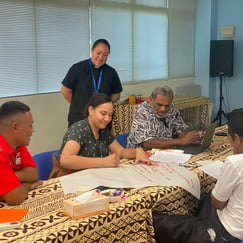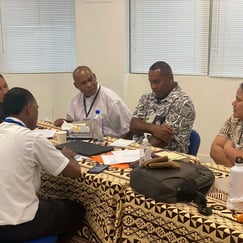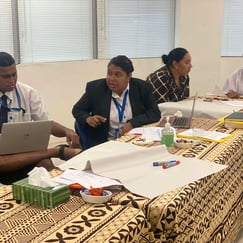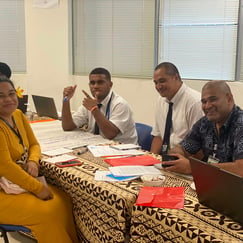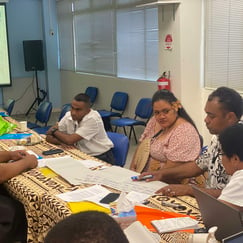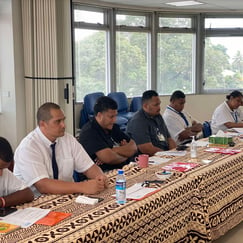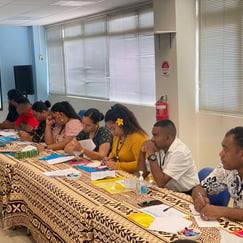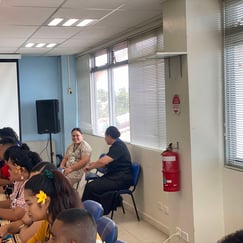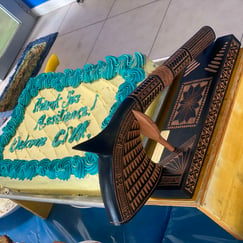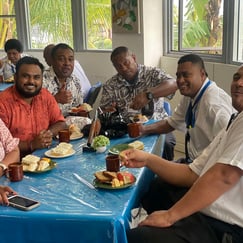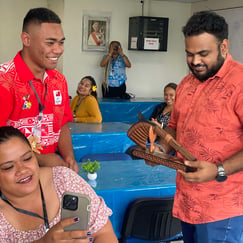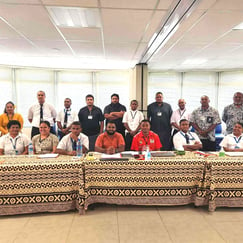Strengthening Resilience through CIVA and QGIS Training
Suva, Fiji
Introduction to CIVA and QGIS Framework
Today marked the launch of an intensive week-long Training of Trainers (ToT) program under the St. John the Baptist Theological College Training Program. The focus is on Community Integrated Vulnerability Assessment (CIVA) and the QGIS Framework, with the sessions being led by Ms. Elisiva Sunia, alongside a team of experts from Tonga. This initiative directly aligns with Archbishop Sione Uluilakepa’s charge to build a safe and resilient Church, equipping leaders to take proactive roles in addressing the increasing challenges of climate change and disaster risks. This week-long program was designed to empower participants with the tools to carry out vulnerability assessments and enhance disaster preparedness across communities. The training emphasized integrating community knowledge with technical data, ensuring that both grassroots insights and advanced geographic information system tools like QGIS play a role in decision-making.
Participants included students of the SJTBTC, ACOM priests in Suva as well as ACOM staff from the Solomons Island, Suva Archdeaconry Priests, and youth members from the Tonga Episcopal Unit. Today's session covered CIVA principles, their contextualization, and their role in the church context. It emphasized the importance of vulnerability assessments, adapting the framework to specific community contexts, and empowering church members, particularly youth, to take active roles in resilience-building. They explored vulnerability challenges, such as water security, infrastructure resilience, and socio-economic pressures.
Farewell to Mr. Pallawish Kumar
In addition to the training, we bid farewell to Mr. Pallawish Kumar, a dedicated lecturer who played a key role in the Climate Change Adaptation and Disaster Risk Reduction (CCA & DRR) Certificate 4 Course in collaboration with the University of the South Pacific (USP). Over the past six months, Mr. Kumar’s expertise and commitment have been pivotal in guiding students through the complexities of disaster preparedness and resilience. His departure marks the end of an impactful chapter, and we are grateful for his invaluable contributions.
Key Takeaways
The training underscored several crucial points:
Community-Centered Approach: Engaging community members ensures that local knowledge informs vulnerability assessments.
Youth Empowerment: Young people were identified as critical players in resilience-building, supported by church leadership.
Sustainability and Structure: Participants emphasized the need for consistent training, clear reporting structures, and integrating CIVA principles into parish policies.
This training has fortified the participants' abilities to lead assessments, create action plans, and prepare their communities for future disasters. Our Church remains committed to fostering resilience through education and practical application as we advance.
Let’s continue to act with hope and resilience in the face of climate challenges. Together, we can build a future that is not only prepared but empowered.
